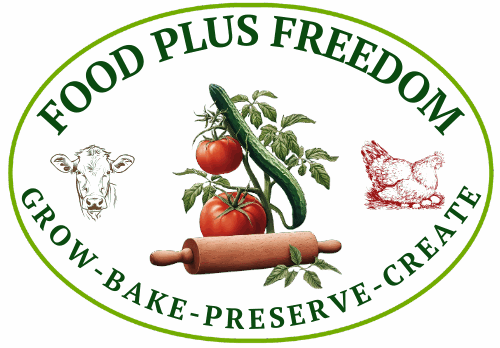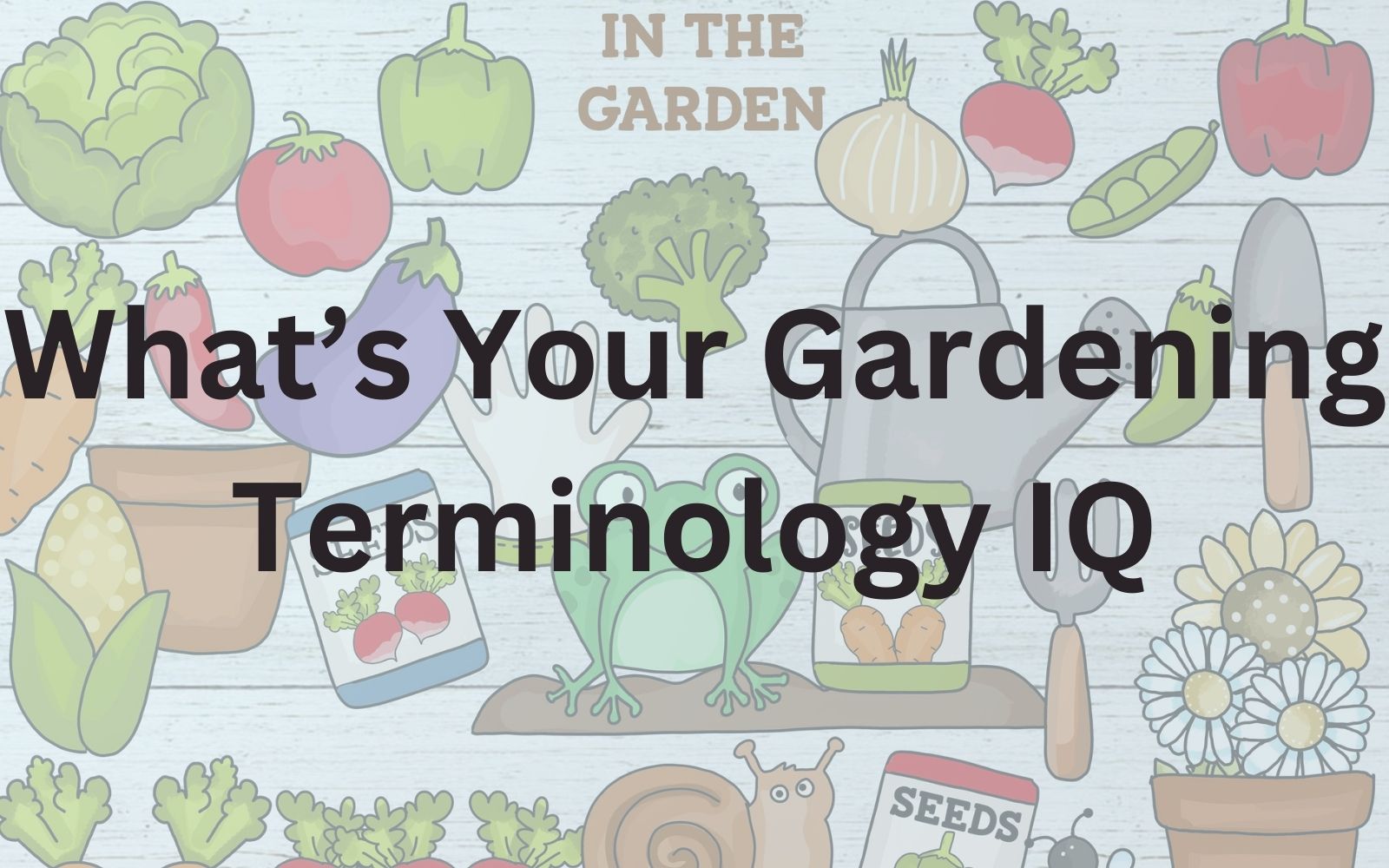Garden Terminology – (Updated 9/2/2024)
We are updating Garden terminology throughout the 2024 season. If we’ve missed any terms or you have questions, please contact us.
How Seeds and Plants are Grown
Conventionally Grown: Seeds and plants which are raised through conventional methods and are not organic. Farmers can grow them with pesticides and GMOs. Food and seeds that are not labeled as organically grown undergo conventional farming methods. Many seeds companies do not use the word conventionally grown. They are just marketed as seeds.
Be aware that small farmers who grow in an organic or beyond organic means, normally aren’t organic certified. The expense and amount of paperwork aren’t worth it to them. Talk to the small farmers in your area about how they grow so you can buy starters, seeds, and food from them.
Genetically Modified (GMO): The term genetically modified means the plant or seed underwent genetic alteration at the cellular level. Scientists can and have change anything they want in the plant. They’ve added pesticides to the seeds, changed how the plant or fruit ripens, plus more. GMOs are not natural and could cause health issues.
Genetically Engineered is the new words that have replaced GMO. Humans alter at the cellular level these foods and seeds.
Non-GMO means that the food does not undergo genetic engineering. It doesn’t provide information on how the food was raised. Non-GMO doesn’t provide information about the farming practices used to grow the food. This means NON-GMO does not mean organically grown.
Organic growing means the food is non-gmo, has started with organic seeds or starts, the land has been used organically, isn’t sprayed with any chemical synthetic pesticides or herbicides. Organic food and seeds means no synthetic means of growing. There are organic sprays that are allowed in organic growing.
How your plants grow and regenerate
Annual: Is a plant that naturally germinates from a seed, blooms, produces seed, and dies in one growing season. In the perfect environment, some annuals can survive more than one season. Some plants can be cloned, which ensures the plant’s continuous growth. However, neither controlling the environment indefinitely nor cloning is part of nature.
Even if the seeds from a plant drop and new plants grow without human intervention, the plant is still classified as an annual because the original plant dies within one growing season.
Biennial: Is a plant that germinates, grows, overwinters (usually cold climates work best with biennials), and then produces seed in the second growing season. Herb plants such as Mullein grow leaves the first year. You can use the leaves medicinally and in teas without killing the plant. The second year, the Mullein herb returns, grows leaves, flowers, and seeds, then dies. All parts of the plant can be used medicinally and in teas in the second year, for the seeds drop to replant themselves in the same area. You can also collect the seeds and plant them wherever you desire.
Other plants, such as carrots and onions, need to be left alone in order to gain seeds. In the first year, the root, in this case the onion or carrot, forms. The plant stores its energy in the root and goes dormant into winter. The following Spring the plant sends off above ground growth, creating spring seeds. You may consider these types of plants as annuals if you intend to eat the root each year, as they need to be replanted annually. However, according to classifications, they are biennial because it takes two years to gain the seeds.
Perennials: Are plants that live for multiple years. With most living 10 or more years. Think blueberry bushes, asparagus, trees, grapes, etc. You normally purchase perennials in a tree or root form. And they don’t normally produce a crop the first year. However, they require the least amount of effort in the long run.
Seed Terminology
If you’re buying seeds, you need to know what you’re looking for to gain optimal health. Use the following seed terminology to help you purchase the right seeds for you.
Types of Seeds:
Open pollinated: Nature, such as winds, insects, bees, etc., creates these seeds through pollination. These seeds become more diverse through natural pollination as they receive pollination from other similar plants nearby. Scientists don’t control pollination in a lab. You may find different varieties of genes coming out in your food even from one plant. Pollination from the same variety of plant can ensure a high level of stability in the plants.
Heirloom: When you hear heirloom, think old. Or seeds that have passed down through generations. This means they are the best seeds to save and grow, especially if you’re getting them from your garden or someone in the same environment. Seeds remember where they grow, this makes them more hardy year after year. Plus, heirloom seeds stabilize and establish themselves as they are grown for generations. Heirloom seeds must also be open-pollinated, but not all open-pollinated seeds are heirloom.
Hybrid or hybridized: These seeds are not genetically modified or engineered. The intervention and intention of humans have led to the creation of hybrid seeds in the marketplace. F1 seeds refer to very stable hybrid seeds. Meaning every plant and fruit will look the same. Nature can create hybrid seeds when seeds are saved from plants that have been cross pollinated with similar plants. You can save seeds from hybrids, with one catch. You don’t know what plant you’ll grow from that seed. It can resemble any gene that is inside the hybrid.
GMO Seeds: Avoid GMO (genetically modified organism) or GE (genetically engineered) seeds. The seeds get manipulated in a lab using special machines such as the CRSPR to change the seed at the cellular level. Man has manipulated these seeds for a specific reason. These seeds have been manipulated by man to be more pest tolerant, a certain color, having longer storing time, etc. Do not save or buy GMO seeds, they contaminate your soil and you.
Treated Seeds: These are another group of seeds you need to avoid. The seeds get an outer coating treatment to keep the seeds fresher and grow more easily. The treatment ingredients have been linked to cancer and other disease. You can tell a treated seed because of it’s color. I’ve seen pink, orange, and purple treated seeds. There may be other colors being used as well. If a seed doesn’t look like what a seed color should look like avoid them.
Myths about Treated and GMO OR GE Seeds: I have been on forums, found articles, and other information online that tells people treated and GMO or GE seeds are only available to farmer and in bulk. This is completely false! I have personally seen and accidentally bought treated corn and peas. One was from a nursery where they packaged the seeds. The other was in prepackaged seed packs at a big box store.

